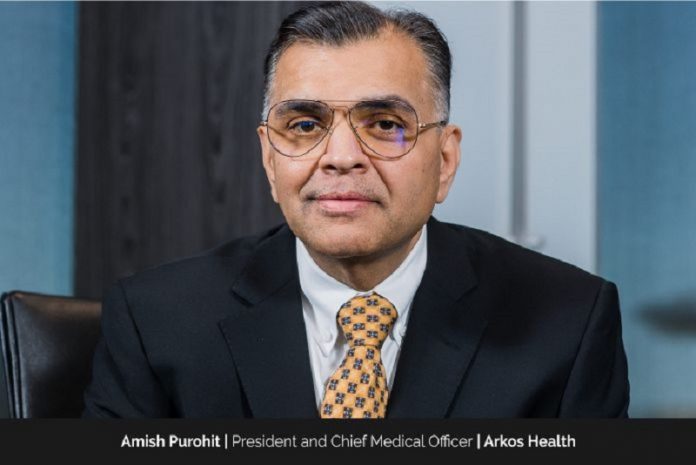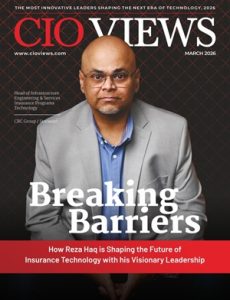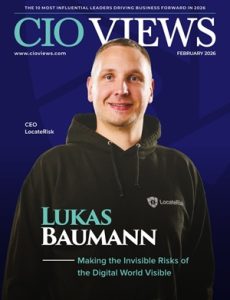In the wake of a pandemic, we need now more than ever, a leader and visionary who can help bridge the gaps in care and services by supporting vulnerable patients and their families access the care they need.
Dr. Amish Purohit is the President of Arkos Health, the Chief Executive Officer for U.S. Health Systems, and a seasoned physician executive and business leader, with over 25 years of diverse healthcare operations experience in commercial, Medicare, Medicaid, TRICARE business markets, and the practice of medicine.
He is Board certified by the American Board of Family Medicine, a Fellow in the American College of Healthcare Executives, and is also a Forbes Council Member. Prior to joining USHS, he was the Chief Medical Officer for Arizona Priority Care, an affiliate of the Heritage Provider Network.
Earlier in his career, Dr. Purohit served over 16 years in the United States Air Force Medical Service Corp, of which 4 ½ years were active duty. He also served as a flight surgeon in the USAF reserves, and achieved the rank of Major.
As a Top 100 Healthcare Leader & Visionary (IFAH, 2019, 2021), Dr. Purohit has been leading corporations with over $250M in revenue, and organizations with over 1,000 employees.
Choosing a healthcare career as “Service before Self”
After receiving his master’s degree in healthcare, Dr. Purohit joined the United States Air Force as a Medical Service Corp Officer, where he learned the valuable principles that shaped him into who he is today, including “Service before Self.”
“My career began in the United States Air Force, because I was enthusiastic about service and service to our great nation,” he recalls.
Dr. Purohit’s father immigrated to the United States from India in the 1970s, and even though he struggled initially, he made the most of the opportunity to provide a better life for his family.
Always grateful for the fact that his father, and many other immigrants, have worked hard and succeeded in the USA, Dr. Purohit points out that other countries do not provide the same level of opportunities and freedom that the United States does. He has always had a desire to serve his country and contribute to the need for various skill sets in the military.
“I have always wanted to be in an industry that had a palpable impact on people’s lives. What better industry than healthcare, to be able to impact the lives of patients and their families?” he asks.
“Ask not what your country can do for you – ask what you can do for your country.” – John F. Kennedy: 35th President of the United States
Learning leadership lessons in the Air Force
Dr. Purohit’s interest in healthcare, and desire to do more, led him down the path of leadership when he served in the Air Force. After 4 ½ years of years of active-duty service, he decided to go to medical school, where he completed a residency in Family medicine at the University Hospitals of Cleveland, and also a non-operative Orthopedic and Musculoskeletal fellowship at the Cleveland Clinic.
He found the Air Force a great training ground to learn leadership skills as they put their Officers in positions to “sink or swim,” being given challenges that may seem insurmountable, but that really assess one’s ability to lead, resulting in either success or failure.
This sort of training makes one prove their mettle as an officer, by putting pressure on oneself – not just physically but mentally too. “This type of mentality leads to a stronger mental fortitude, and tells you if one has the instinct to lead or not,” notes Dr. Purohit.
His experiences as an Air Force officer bolstered his confidence in his ability to lead, and reinforced his leadership skills. Dr. Purohit recalls an experience in his first position with the Air Force, when he had a Master Sergeant with 20 years of experience.
He was just a fresh graduate when he took over the responsibility, not only for managing an individual who had more experience than he did, but to turn around a failing medical readiness program in only 6 months before the Air Force inspection.
This program had failed the inspection twice before, and if it failed this time, they would have shut it down. However, they worked countless hours and were able to pass the inspection. He credits that experience alone with helping him learn that trust, and building trusting relationships, is what it’s all about.
“I built that relationship and gave him the resources he needed to be successful. Since then, I have never shied away from taking on leadership positions, because my confidence and mental fortitude, to this day, cannot be shaken,” he affirms.
Success as a leader comes down to trust
Dr. Purohit observes that he has experienced success in every leadership position, and had the ability to turn around many organizations, using the same approach for years. As a result, it was not hard for him to take a leap of faith on leading organizations, since he had a history of turning around multiple failing organizations.
From his past experience, Dr. Purohit learned that success as a leader comes down to trust, and that healthcare organizations, in particular, must focus on the impact they have in their communities, because it is important for success.
It is important to build trust in your organization’s inner circle, and strengthen connections with those around you, building trust with all your relationships, internal and external.
Dr. Purohit points out that, while trust is the foundation of success, it takes years to build, but is easily broken, and hard to regain. And if you have built relationships, and the trust in those relationships is apparent, success will inevitably follow.
To hit your targets and goals, and have an impact as a leader, you must gain the trust of your employees. They will follow your lead only if they trust you as a person. As a leader, building trust is the ability to inspire your staff, give them what they need, let go of control, and get out of the way, and allow each team member to shine.
The challenges of parenting through medical school
The biggest challenge Dr. Purohit faced in his life was as a young father, when he and his wife decided to start Medical School with a 6-week-old child. Pursuing a career in medicine was never easy, and there were many reasons to quit and forget about their desire to be physicians.
One of the biggest challenges was balancing their ability to raise a child through medical school, and successfully completing medical school and residency. To be successful, there was no room for excuses, and as individuals, they had to really manage their time to study, and take care of their child.
“What that challenge taught me, is that there’s always a way to manage demanding situations, but you have to stay focused, and push and test your limits as a human being,” he states.
Another valuable lesson Dr. Purohit learned was to never be afraid to ask for help. During the couple’s medical journey, his parents played an essential role in their lives by supporting them. And without their support, it would have been extremely difficult to accomplish what they did.
Motivating patients to care about their health
The health of a population is dependent on many factors, including education levels, income, and access to resources. Inequities in these areas can often lead to higher rates for disease because people who have access to fewer resources often lack access to quality healthcare.
According to Dr. Purohit, it is essential to consider all the factors that contribute to the health of the population, or individuals and their families, and in healthcare, we must influence and overcome the social determinants of healthcare.
“If we want patients to be a steward of their own healthcare, and take more responsibility for their health, we as healthcare leaders and healthcare organizations, must focus on the non-medical factors that contribute to health,” he maintains.
For example, families that are struggling to put food on the table or don’t have their own transportation don’t think of health at all, because they have so many competing interests.
“A Theory of Human Motivation” from Maslow’s hierarchy of needs, states that if we can resolve the basic needs an individual has, then we can influence motivation towards their own healthcare, and the status of their health.
While the idea that we must change someone’s behaviors is an inspiring one, it’s important to overcome any barriers or factors contributing towards the current situation as it relates to healthcare, before attempting to change their actions.
“If I could influence change in a patient’s behavior, and their perception of their own health, in vulnerable populations, that is the change that I would like to influence,” states Dr. Purohit.
“We cannot solve our problems with the same thinking we used when we created them.” – Albert Einstein
Driving unparalleled performance at Arkos Health
The mission of Arkos Health, a technology enabled population health company is to support vulnerable patients and their families. Their goal is to bridge the gaps in care and services that the patients and their families otherwise would have a hard time accessing.
Arkos provides care management services to help some of the sickest patients navigate the health care system, coordinates their care, and ensures that every patient that has complex needs also has a care plan to address those needs.
Additionally, they provide telehealth and in-home visits, when needed and appropriate. Arkos believes that patients should get timely care when they need it, not when it is convenient for the healthcare system to provide it.
With a wealth of experience spanning over 25 years, as both an executive and practicing physician, Dr. Purohit is able to bring unique insights into every aspect, from operations management all the way down to defining performance goals for the organization.
He knows how important it can be when you’re looking at solving some big problems in business. His unique experience of value-based contracting with payors, and historical success of deploying these services effectively and efficiently, has led to unparalleled performance.
His ability to drive performance in this niche space has been a main contributing factor to the growth of the company, and the future growth of Arkos.
It’s no secret that any company must deliver excellent results on an ongoing basis in order for them to succeed, and Dr. Purohit believes that in order to continue staying competitive, their company needs to perform on a consistent basis.
Building strong relationships with their clients, providers, and patients is another important aspect that matters to any business. From Dr. Purohit’s perspective, two things drive results and performance – Competition & Pressure.
“As a leader you must set the expectations, but also continue to pressure your team to outpace and beat the competition,” he maintains.
“Be stronger than your strongest excuse.”
– Alan Maiccon
Channeling passion & purpose into motivation
Dr. Purohit leadership philosophy is founded on the idea that you can lead a team without having to motivate them. He firmly believes that the power to be motivated comes from within, and no one should have the task of motivating you.
Personal motivation should be a result of your passion and purpose in life. Having that understanding, and following your passion, will continue to provide the self-motivation you need to be successful.
“I enjoy what I do, and have a clear understanding of what my purpose in life is, and what my passion is. If I must motivate any of my employees, then I have hired the wrong employee,” he points out.
A leader who believes in his team, Dr. Purohit ensures that they have the resources they need to get their job done and gets out of their way. His responsibilities include overseeing the entire operations of the company, and his day starts early, with back-to-back meetings internally with his team, or with partners in their space.
“I like to plan out my day based on what I have scheduled. Internal meetings will consist of getting updates on how we’re doing with our populations, from a quality-of-care standpoint, and then from a financial standpoint,” he notes.
If they’re struggling in any of those areas, Dr. Purohit expects his executive team to tell him what the plan is, and how they will resolve those issues. Meetings with their health plan partners involve looking at their results and how they can collaborate to improve their performance and results in all areas.
Despite having back-to-back meetings, Dr. Purohit also takes the time to walk around the office and talk to employees, a process he calls Management by Walking Around (MBWA), as it gives him an insight into how employees are doing and what they might be struggling with, not only at work but at home.
He knows that he needs to build relationships with all of his employees, because it’s important to understand what barriers the employees face, or resources they require, in order do their job well. “This is the best part of my day,” he says.
If there’s one thing every entrepreneur needs to understand, it’s how important it is to manage their time and balance the demands of their work schedule with other commitments.
Dr. Purohit believes that balancing personal and professional life is all about time management, understanding your work commitments and personal commitments, and holding to your daily schedule.
Whether its family time or leisure activities, he makes sure that they don’t compete against each other on a daily basis, in order to be successful in all areas of his life. Dr. Purohit also ensures that he plans in advance around his professional and personal commitments, as it tremendously helps him achieve work life balance.
“Part of that is also having time to self-reflect on your work and on your family goals, to ensure that you’re following through on your commitments. You cannot manage what you do not measure,” he points out.
“Nothing is troublesome that we do willingly.”
– Thomas Jefferson
Impacting lives and making a difference
Dr. Purohit believes that the future for Arkos is continued growth, and to be the best in class. His personal goal as business leader is to continue building strong relationships with his executives and employees.
“I need to continue to build trust in those relationships. If every employee in our organization is delighted about working at Arkos, then as a business leader, I would have achieved my goal,” he affirms.
Dr. Purohit believes that developing and mentoring other leaders is one of the most important responsibilities for any business leader, and his message to aspiring business leaders is:
Find your true passion and follow it. But remember, true success is not about financial success, it’s about the difference and lives you have impacted throughout your career. Competing with others is necessary in business, but always remember – the true competition is with yourself and ensuring that you continue to outdo yourself.





